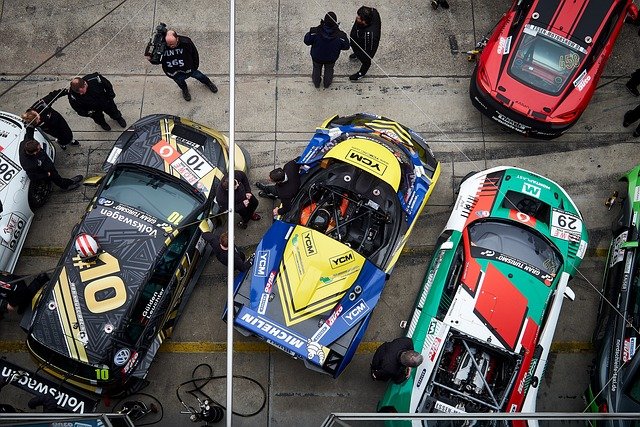Synthetic Fuels: The Future of Sustainable Racing
The world of motorsports is on the brink of a revolutionary shift. As environmental concerns mount and traditional fossil fuels face increasing scrutiny, a new player is emerging on the scene: synthetic fuels. This groundbreaking technology promises to maintain the thrill and power of racing while dramatically reducing carbon emissions. But what exactly are synthetic fuels, and how could they reshape the landscape of competitive motorsports?

Environmental Impact and Carbon Neutrality
One of the most significant advantages of synthetic fuels is their potential for carbon neutrality. While burning synthetic fuels still releases carbon dioxide, the production process effectively recycles CO2 from the atmosphere or industrial sources. This closed-loop system means that no new carbon is added to the environment, making synthetic fuels a potentially game-changing solution for reducing greenhouse gas emissions in motorsports.
Performance and Compatibility
For racing enthusiasts and teams, the burning question is how synthetic fuels stack up against traditional gasoline in terms of performance. Early tests and implementations have shown promising results. Synthetic fuels can be engineered to match or even exceed the energy density of conventional fuels, ensuring that cars maintain their power and speed on the track. Moreover, these fuels are compatible with existing engine technologies, requiring minimal modifications to current racing vehicles.
The Role of Synthetic Fuels in Formula 1
Formula 1, the pinnacle of motorsport, has already taken steps towards incorporating synthetic fuels into its sustainability strategy. The sport has announced plans to introduce 100% sustainable fuels by 2026, with synthetic fuels playing a crucial role in this transition. This move not only demonstrates F1’s commitment to reducing its environmental impact but also positions the sport as a testbed for technologies that could eventually trickle down to everyday road cars.
Challenges and Hurdles
Despite the promise of synthetic fuels, several challenges must be overcome before widespread adoption in motorsports becomes a reality. The primary hurdle is cost. Currently, the production of synthetic fuels is significantly more expensive than refining traditional fossil fuels. Additionally, scaling up production to meet the demands of major racing series requires substantial investment in infrastructure and technology. There are also concerns about the energy efficiency of the production process, with critics arguing that direct electrification might be a more efficient use of renewable energy.
The Broader Implications for the Automotive Industry
The development of synthetic fuels in motorsports has implications that extend far beyond the racetrack. As the technology matures and becomes more cost-effective, it could offer a solution for reducing emissions in other hard-to-electrify sectors of transportation, such as long-haul trucking, shipping, and aviation. Moreover, the advancements made in racing could accelerate the adoption of synthetic fuels in consumer vehicles, providing a cleaner alternative for those who cannot yet transition to fully electric cars.
The Future of Racing with Synthetic Fuels
As synthetic fuels continue to evolve, we can expect to see significant changes in the world of motorsports. Race teams and engine manufacturers will likely invest heavily in optimizing their powertrains for these new fuels, potentially leading to innovative engine designs and improved efficiency. Spectators may notice subtle differences in the sound and smell of race cars, as synthetic fuels burn differently than traditional gasoline. However, the core excitement and competitive nature of racing will remain unchanged, if not enhanced by the knowledge that the sport is becoming more environmentally responsible.
In conclusion, synthetic fuels represent a promising path forward for sustainable racing. By offering a way to maintain the high-performance aspects of motorsports while significantly reducing carbon emissions, these fuels could usher in a new era of environmentally conscious competition. As technology advances and costs decrease, we may soon see a day when the roar of engines at racetracks around the world is powered by fuels that are as clean as they are thrilling. The race to a sustainable future in motorsports is on, and synthetic fuels are leading the charge.





